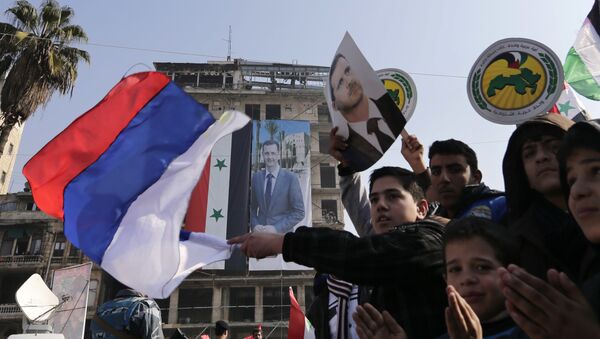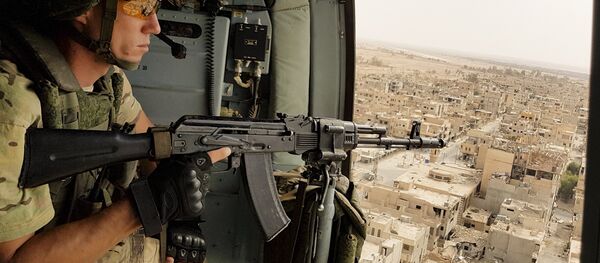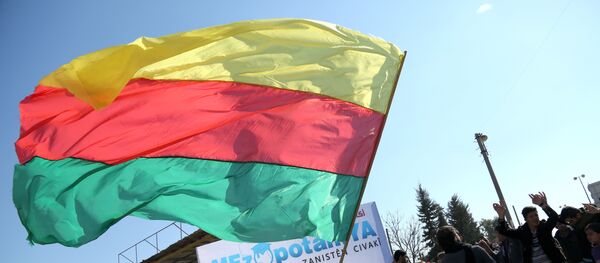Speaking with Sputnik Kurdistan, Müslim commented on the relations of Syrian Kurds with the United States and Russia, underscoring the serious difference between Moscow’s and Washington’s policy in the region.
"Russia’s interests are transparent while US interests are rather unclear to many. There is a lot of uncertainty about Washington’s policy in Syria. The reason behind the Russian presence in Syria and in the Middle East is well-known," the politician said.
Müslim praised Russia’s role in Syria, saying that Moscow has significantly helped the "legitimate Syrian government" led by President Bashar Assad and "changed the balance of power" in the region.
"We [Syrian Kurds] hope that it is Russia who will play the key role in the democratic solution of the Syrian crisis," he said.
This assumption was echoed by İlham Ahmed, co-chairman of the Syrian Democratic Council. According to her, Moscow should intensify its efforts to include Kurds in the talks in Geneva and Astana.
"Russia knows that the Syrian problem cannot be resolved without Kurds. Kurds are a major force in Syria but they have not participated in the negotiations. Russia should do more to help Kurds join the talks," Ahmed said.
Kurds currently control two large areas in northern Syria. The first is the area spanning from Manbij in western Syria to the Turkish border in the north and Raqqa in the south. The second is Afrin Canton in northern Syria, one of the four cantons of Rojava, a de-facto autonomous Kurdish zone. The creation of Rojava was announced in 2016 and the region was later renamed to the Democratic Federation of Northern Syria.
Müslim, however, was critical of the Syrian minister’s remarks, stressing that only the idea of democratic federalism earlier proposed by the Syrian Kurds could resolve the situation.
"[What Muallem has proposed] is not enough. Those standing against terrorism side by side with Kurds are fighting not only for our interests. Both Kurdish and Arab blood has been spilled in Manbij, Raqqa and Tabqa. They fought for a democratic federation," he concluded.



